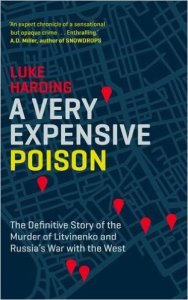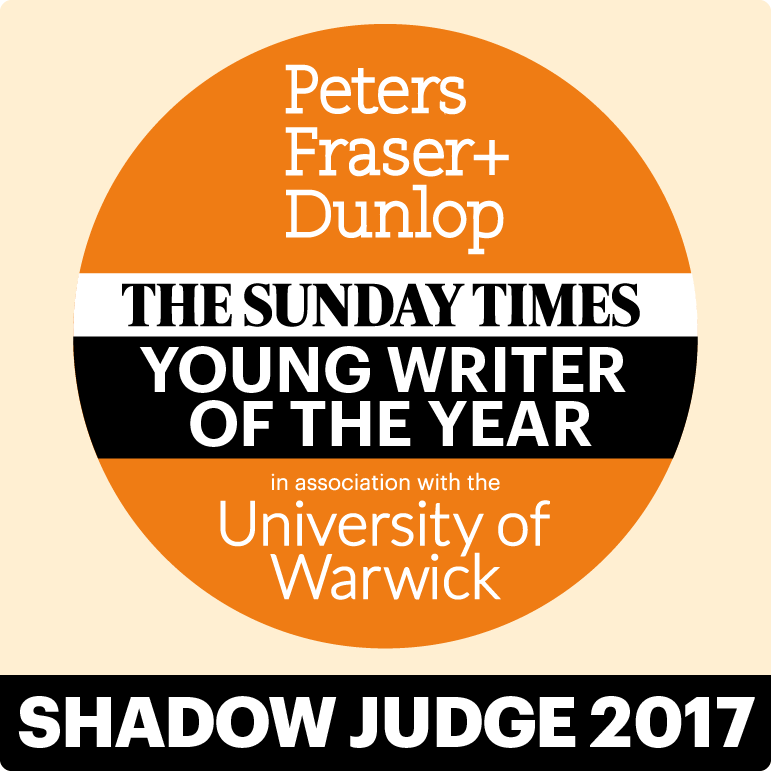 ‘A Very Expensive Poison: The Definitive Story of the Murder of Litvinenko and Russia’s War with the West’ by Luke Harding outlines the chilling murder of a Russian dissident which resulted in the rapid deterioration of Moscow’s relationship with the West. Former FSB agent Alexander Litvinenko fled to London in 2000 with his wife and son after publicly criticising the Kremlin and later worked as a journalist and consultant for MI6. He was poisoned with polonium at the Millennium Hotel in Mayfair in November 2006 and the subsequent investigation into his murder has had a significant impact on Anglo-Russian relations over the past decade.
‘A Very Expensive Poison: The Definitive Story of the Murder of Litvinenko and Russia’s War with the West’ by Luke Harding outlines the chilling murder of a Russian dissident which resulted in the rapid deterioration of Moscow’s relationship with the West. Former FSB agent Alexander Litvinenko fled to London in 2000 with his wife and son after publicly criticising the Kremlin and later worked as a journalist and consultant for MI6. He was poisoned with polonium at the Millennium Hotel in Mayfair in November 2006 and the subsequent investigation into his murder has had a significant impact on Anglo-Russian relations over the past decade.
Litvinenko’s symptoms caused by the polonium poisoning initially mystified the doctors who treated him. The idea of Moscow’s security services poisoning state enemies with an exceptionally rare radioactive substance in a cup of green tea may have seemed too outlandish even for the most far-fetched fictional thriller. The source of the poison was confirmed just hours before Litvinenko died and three weeks after his visit to the Millennium Hotel, allowing him time to be interviewed by the Metropolitan Police and identify those who administered the rare substance four hundred times more radioactive than uranium: former KGB agents Andrei Lugovoi and Dmitry Kovtun.
Investigators were able to track the movements of their main suspects who had unknowingly left traces of the polonium’s intensely radioactive properties across Europe. Witnesses’ descriptions of Lugovoi and Kantov’s incompetently conspicuous behaviour, their previous bungled attempts to kill Litvinenko and the farcical press conferences and interviews which followed Moscow’s refusal to extradite them to the UK would be rather entertaining to read in a fictional context. Instead, it is all terrifyingly true and the evidence strongly indicates that Litvinenko’s death was ordered by the state.
Russian security agencies have been known to use some creative methods of execution to eliminate state enemies abroad, of which the most famous examples include ice picks (Lenin in 1940) and ricin-tipped umbrellas (Markov in 1978). The evidence suggests that similar tactics have continued to be used after the collapse of the Soviet Union. As well as Litvinenko, Harding explores other recent cases such as the death of Alexander Perepilichny, a businessman and whistleblower who suddenly collapsed whilst jogging in Surrey in 2012. Traces of gelsemium, a poisonous plant used by Russian and Chinese assassins, were later found in his system. The family of Boris Berezovsky also remain convinced that his death at his Berkshire mansion in 2013 was staged by Moscow as an apparent suicide.
Harding takes a broader look at the context of Russian foreign policy, particularly in Ukraine, Georgia and Syria, a subject which could easily fill several books. It was only after Flight MH17 was shot down over Ukraine in 2014 that the Home Office announced that an inquiry would be held into Litvinenko’s death. In January, this year, Sir Robert Owen concluded that Litvinenko’s poisoning was likely to have been personally approved by Putin. Published just weeks after the inquiry ended but with unresolved questions about Moscow’s involvement in the case and MI6 files remaining secret, ‘A Very Expensive Poison’ really is as “definitive” an account of the case as we are ever likely to get.
Harding’s journalistic style makes ‘A Very Expensive Poison’ a gripping and pacy read. His account draws on new evidence revealed during the inquiry, extensive background knowledge from his experience as a foreign correspondent for the Guardian based in Moscow between 2007-11 and numerous interviews with those involved in the case including Litvinenko’s widow Marina, his son Anatoly and the suspects themselves. Overall, ‘A Very Expensive Poison’ is a compelling account of a truly shocking murder and the very murky circumstances which surround it.





Oooh, there was a riveting article about this in the LRB. Such a sad story. There was a bit in the article about the change of government we had at the last election, and the way the new government quietly dropped the quest for answers. Have I remembered that right? Anyway, I thought that was awful.
LikeLike
Yes, Litvinenko’s wife requested sanctions against Putin and others but the government have refused to implement them.
LikeLike
I’ve read a book on the case by Martin Sixsmith (I think) but this sounds compelling – a shocking murder, as you say.
LikeLike
I think this is the first major book about the case to be published since the inquiry ended so it was good to read it while all of the context was up to date.
LikeLiked by 1 person
I remember seeing this case on the news and it sounds like something out of a spy novel. Great review!
LikeLike
Thanks! Yes, it does sound fictional but unfortunately it is all true.
LikeLiked by 1 person
I can’t believe the poisoning was ten years ago, I remember it so clearly! And now I need to know what happened, as far as we can know, anyway… totally keeping an eye out for this book.
LikeLiked by 1 person
Pingback: My Books of the Year 2016 | A Little Blog of Books
Pingback: Agent Sonya by Ben Macintyre and Shadow State by Luke Harding | A Little Blog of Books